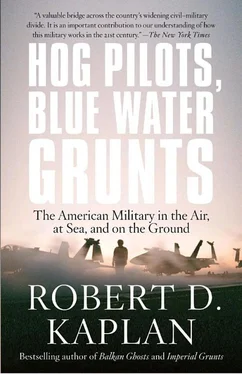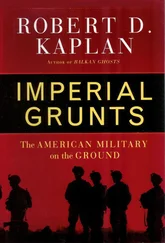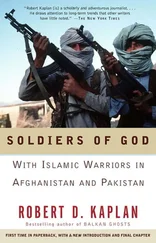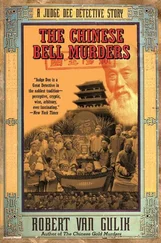Smitty’s stories about Iraq were likely exaggerated, yet they had a mythic quality about them that was truly impressive. It had much to do with the way he told them. His light green eyes flashed the richest of expressions as he talked. I thought of Faulkner, and the stories that the old men in his narratives told “while chewing tobacco until the suption is out of it.” 13In Operation Iraqi Freedom, Smitty had traveled six hundred miles, for forty-eight days, and saw around a thousand patients while assigned to a forward resuscitative surgical team and a much larger, eighteen-truck surgical company that included its own portable morgue—where the docs would keep their mineral-water bottles cold between the stacks of corpses. “You go inside the truck, ignore the dead guys, and just go about your business.”
The first marine who Smitty saw dead had just been pulled off a Black Hawk and “his face was pale, pale, pale. At the beginning of the war,” Smitty went on, “they brought in this marine and Iraqi soldier at the same time. They had been found wounded in the same spot, and it seemed from their injuries that they might have tried to shoot each other. Well, when the wounded marine sat up and saw a surgeon treating the Iraqi, he grabbed the doc’s nine mil and tried to shoot the Iraqi. From then on, we separated the marine from the Iraqi patients.
“The physicians wanted to treat the worse-off first. That’s the civilian mentality, and inside Navy hospitals you might as well be in the civilian world. But in a military surgical unit during a war, you got to understand, the doctors have to treat the minor injuries first, in order to get marines back into the fight. Iraqis should get treated only when the docs are not busy with marines. The surgeons caught on to this only when they started seeing dead marines come in.
“It’s the dead you remember more than the ones whose lives you saved,” Smitty observed, taking a long drag on a cigarette. “I remember this young lieutenant. Was he a first lieutenant or second lieutenant? I don’t know. Anyway, he was young and he had a wedding ring on. Shit, I thought. He probably has a wife who’s at the grocery store now, maybe a young kid in school, and I know he’s dead and they don’t. Stuff like that just does something to you. Over a decade in the Navy and this was the high point.”
Once, at a local restaurant with Rivera, Smitty spoke of an Iraqi soldier who was brought in with an entire buttock shot off. “I would’a kept fighting, even with half my ass blown off,” Rivera shouted. “No you wouldn’t,” Smitty cut in, “because the pain and trauma would have forced your blood to the wounded area, and you would have gone into shock and nausea if you hadn’t immediately blacked out. These ain’t like hunting accidents. Assault rifle bullets are designed to tumble at high velocity through the body.”
The most memorable story that Smitty told was about “the gunny who wouldn’t die.” Everybody in the hootch had heard it. Checking the facts, I learned later that it wasn’t a gunnery sergeant at all but a first sergeant: the effect of the story was the same, though. [5] First Sgt. Edward Smith of Chicago.
“There was this gunny,” Smitty would begin, “who came in with his head blasted through with a bullet. But he was still breathing. He just wouldn’t die. So we intubated him to help him breathe through all the muck and vomit in his mouth. Then we sent him over to the dental tent to die. In a field hospital there was nothing more we could do for him. His eyes were wide open, completely fixed and dilated. He was brain-dead. He was Cheyne-Stoking—taking rapid, shallow, rattling death breaths. All the corpsmen took turns going over to hold his hand. He remained like that for twelve hours before he finally expired.”
“He didn’t give up because he wanted to fucking get back into the fight,” Rivera shouted.
“He was fucking brain-dead,” Smitty answered solemnly.
“No, you don’t understand,” Rivera countered. “He was a Marine grunt, he wanted to get back into the fight.” Rivera’s expression was notably naïve—he truly believed this.
———
For three weeks the marines shared the hootch with a twelve-person humanitarian aid mission from the U.S. Air Force Reserves that had been dispatched by European Command. It included three physicians, two dentists, and an optometrist. Every morning, inside the Tondibiah army base, they treated over five hundred people from nearby villages, mainly women with babies hanging on to their backs as though by suction. The Air Force doctors provided relief for worms and other ailments, which would return in a week or two anyway because of the primitive living conditions. “It’s less a health program than a health festival,” one of the physicians told me cheerfully. “It’s kind of an exercise in futility and good intentions that still earns goodwill and gives a technical service like the Air Force the field exposure it needs.”
Like the marines, these Reserve doctors were mainly from the South and Midwest, and from working-class areas of the Northeast. They were thrilled to be in Africa, away from the pressures of their daily medical practices, and having a chance to serve their country at the same time. Humanitarian exercises eased the way for bilateral military relations.
The Air Force mission commander was Maj. Melissa Triche of Bucyrus, Ohio. Tall, angular, with a lovely face and sophisticated manner, she was, I was surprised to hear, one of six kids from a family that lacked the money to send her to college. “I enlisted in the Air National Guard for six and a half years. It paid the money for me to attend Kent State. The Guard made me,” she said with matter-of-fact gratitude. She was now in the Reserves and divorced, with an eight-year-old son back in central Ohio who was staying with his father, a C-130 navigator, while she was away. Like Staff Sgt. Steve Long, the Reserves had become her livelihood. She figured out how to work the system in order to get activated two hundred days a year. “I’m a Reserve bum. It’s been easy to do since 9/11.”
———
The culmination of the two-month training mission was to be platoon-level field operations for 150 host-country troops in a savannah tract two hours north of Niamey. Real-world intelligence about incursions by the Salafist Group for Preaching and Combat would be provided by the Marine advisors to Nigerien commanders, who would then lay out ambushes. The ambush sites would be equipped with dummies to be killed, captured, and searched by Nigerien troops. On the dummies would be documents that the Nigeriens would have to exploit for intelligence purposes. There would be various hostage and prisoner scenarios. One morning we left to do a field survey of the training site.
When you left Niamey on rutted dirt tracks, it was as if the country disappeared on you. There was no police, no sign of authority, nothing. Men with Tuareg headdresses began to appear here and there at roadblocks. The bloody apricot soil thinned out into a bumpy semi-desert, bearded with thorns and punctuated by termite hills. For hundreds of miles, north from the Atlantic Ocean to Niamey, the landscape barely changed. But beyond Niamey, still going north, there began an increasingly dry transition zone that would culminate in utter desert.
Flash floods had left the road washed out in places, with the wheels of gigantic trucks half sunk in mud, the drivers stuck on the side of the road for days. We passed through several villages, the most traditional-looking I had seen in Africa, composed exclusively of wattle and mud brick. There were goat herds and camels loaded down with firewood. Women wrapped in colorful fabrics evocative of exotic birds pounded maize. It was a vision of Africa out of a time capsule, with the stresses of modern development filtered out.
Читать дальше












